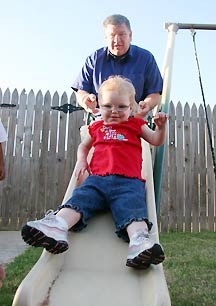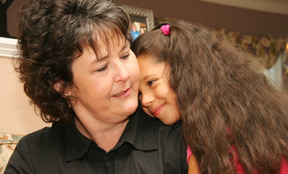DOWN HOME: Agnostic & editor agree on thanks
Posted: 11/16/07
DOWN HOME:
Agnostic & editor agree on thanks
Sometimes, it’s downright weird how people with widely divergent worldviews can come down in the same place.
But here I am, right beside A.J. Jacobs.
He’s the author of a best-selling book, The Know-It-All. I’ve been accused of knowing practically nothing.
He’s an editor-at-large for a hoity-toity men’s magazine, Esquire. I’m the editor of a Baptist newspaper 99.9999999 percent of the readers of Esquire never heard of.
He’s an agnostic. I’m a Baptist minister.
But Jacobs and I agree that, of all the kinds of prayer, thanksgiving is the—well, I don’t know if he’d use this word, but I’m guessing it’s close—most fulfilling.
Jacobs just came out with another book, The Year of Living Biblically: One Man’s Humble Quest to Follow the Bible as Literally as Possible. Haven’t read it, yet, but The Christian Century carried excerpts.
He spent a year trying to do literally everything the Bible says. Ironically, his entry on stoning is both hilarious and poignant.
When he started working on prayer, a Lutheran minister explained the four types of prayer with the ACTS acrostic—Adoration, Confession, Thanksgiving and Supplication.
“Right now, the one that’s working for me best is T, thanksgiving,” Jacobs writes. “The prayers … remind me that the food didn’t spontaneously generate in my fridge. They make me feel more connected, more grateful, more grounded, more aware of my place. … And they remind me that I’m lucky to have food at all. Basically, they help me get outside of my self-obsessed cranium.”
I don’t know if Jacobs would take this as a compliment or not, but let me say one thing: “Amen.”
Actually, I like the ACTS acrostic and use it often during my morning prayer time. It provides discipline and structure for my talk with God. Because of my limited imagination, adoration often sounds like a broken record. Because of my persistent sinful condition, confession also sounds mighty repetitious. And because I fall in awe of God’s infinite wisdom and power, my supplication often seems presumptuous. But because of God’s great generosity, thanksiving is easy, fun and uplifting.
Even when I don’t particularly care for how parts of my life are going, this world is full of so many wonderful things that the list of blessings for which I am (or should be) grateful is the closest I can imagine to infinity.
Just as a parent takes delight in grateful children, I’m sure our prayers of thanksgiving please God, who deserves gratitude for “every good and perfect gift.”
But I imagine what pleases God the most about our prayers of gratitude is how they reorient our spirits and set our hearts aright.
–Marv Knox






